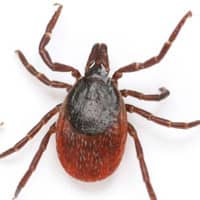Date Posted: May 29, 2015
Category: Ticks

There was a time when most people didn't think much about ticks. It was just another bug looking to bite us and draw out some blood. But as human populations have increased, and bug populations have worked to keep up, pest-related illness has risen as well. Each year we see more news stories of families battling ticks and hear more horror stories of people battling with Lyme disease. So, what can we expect this spring in Providence? More of the same? Not if you spend a couple minutes getting familiar with these tick facts.
Ticks don't travel on their own. They are a parasitic pest that lives, breeds and feeds on a host creature. They prefer furry animals, but will settle for birds and humans if that is all they can find. Because these bugs don't travel on their own, one of the ways you can keep them out of your yard, is by making it less appealing to the animals that carry ticks on them. Keep your trash sealed and secured to prevent wildlife from being drawn in. Keep your lawn trimmed and weeds controlled. The less your yard feels like nature, the less inviting it will be to wildlife. Consider moving bird feeders to the edge of your property. Deer ticks--which are the prime carriers of Lyme disease--are small enough to hitch a ride on birds that come onto your property. You should also consider putting a fence around your property if you deal with ticks often.
Routine pest treatments will make your yard safer for cookouts, pool parties, and other activities. If you plan on having an event, be sure to get a treatment a week in advance.
Ticks don't fly, jump, or fall to get onto their hosts. If you find a tick in your hair, it crawled up your body to get there. But they don't always get to your head. They may crawl under your pants and up your leg. This is how leg bites happen. When traveling in tall grass or wooded areas, it is always a good idea to tuck your pants in your socks and your shirt into your pants. This will make those ticks have to work their way all the way up. Wear light colors so others traveling with you can see them before they can get high enough to bite your skin.
It takes at least 24 hours for a tick to transmit Lyme disease. Always do a search for ticks when you return from being in nature, and use pliers or heavy tweezers to get the entire tick head out of your skin.
Ticks in Providence can be a threat. But if you protect yourself and your yard, you can significantly reduce your chances of contracting a tick-borne disease. Stay safe and stay vigilant this spring. Remember to be cautious when spending time outside. Life is complicated enough without tick-related illness.



